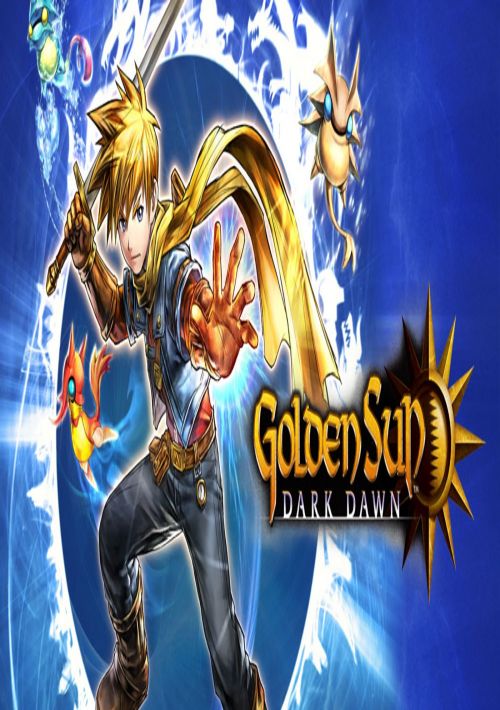
(Mode7)-4.jpg)
Yet nothing we did seemed to be in any way related to that objective. There had been little or no mention of the main plot, with the party's only objective revolving around finding themselves a working ship. We'd been to at least four different towns, each with different stories and troubles, and had solved dungeons and earned new psynergy - but we still didn't see the point of it all. The weird thing is, 12 hours, a few towns, a bunch of dungeons and a lot of exploring later, we still had no real idea what we were supposed to be doing. Instead, the game produced a small cut-scene involving a boy stuck on a ledge, but the only way to help him involved using psynergy that we didn't have. So upon leaving the first town, Daila, we entered the nearest dungeon-like place on the map, which was just a few steps away, and expected things to be taken from there. Sure, the villagers all hint at various places to visit, but there's no obvious imperative to do anything. In other words, once you enter the game's first town, you aren't actually given a set quest to follow. Unlike virtually every other traditional RPG in the past, and unlike the first game, The Lost Age is surprisingly open. And because we now know this confusion stemmed from the beginning of the game, it needs to be explained before continuing. We have to admit that for a long time, this game had us a little confused. A lack of direction, or a lack of directions? And it's here that The Lost Age really begins. The Lost Age picks up right where its predecessor left off, but this time around instead of controlling Isaac, Garet and company, you control Felix and his sister Jenna - whom you'd been chasing for the entire first game.Ī great earthquake takes place early on and, in a rather convoluted manner that involves a tidal wave and the formation of an island, Felix, Jenna, the old scholar Kraden and Sheba (who appeared towards the end of Golden Sun) find themselves on a new continent, Indra. Venus was the second lighthouse to be fired up and, according to legend, if all four are ignited then the world will see the return of alchemy - and with it a new age for mankind. You'll read it anyway, of course.Īt the end of GS, the band of adventurers you were controlling defeated the antagonists Saturos and Menardi, who had become the ‘Fusion Dragon', but failed to stop the Venus Lighthouse from being lit. So if you haven't played the first game, but intend to sometime, it's worth considering this review as serious spoiler material.

Instead, as was intended by Camelot all along, it is part two of the Golden Sun story. It doesn't add a whole lot to the first game, and it certainly doesn't change the core gameplay. Strictly speaking, Golden Sun: The Lost Age is not sequel. In truth, Nintendo should have commissioned Camelot to do a Cube RPG long ago because, as The Lost Age proves, they know a thing or two about the genre.
-1.png)
How ironic it seems then, that as Golden Sun's sequel The Lost Age is released Stateside, Nintendo still await the GameCube's first original, traditional RPG. Released on a system that was being treated as nothing more than a SNES emulator by its makers, it not only compared favourably to 16-bit classics of its kind, it even surpassed the majority of them. Which is why Camelot's Golden Sun deserved all the credit it got. You might get away with it in another game, but not in an RPG. Because while there's probably nothing better than a good RPG, there's certainly nothing worse than a bad one.Īfter all, what other type of game requires so many elements to come together in harmony? Music, direction, plot, graphics, combat, control scheme - if one of these falls short of the rest, it has a major impact on the game overall.

Yet if one genre holds more risk to publishers than any other - especially in Europe - surely it's RPGs. Unfortunately, even the latter option doesn't seem to guarantee success any more, with last year's Rez and ICO being obvious examples. It must be either a) attached to a franchise, in order to lure the unsuspecting masses, or b) simply outstanding. It seems that for a title to be successful these days, it needs to fulfil one of two requirements.


 0 kommentar(er)
0 kommentar(er)
